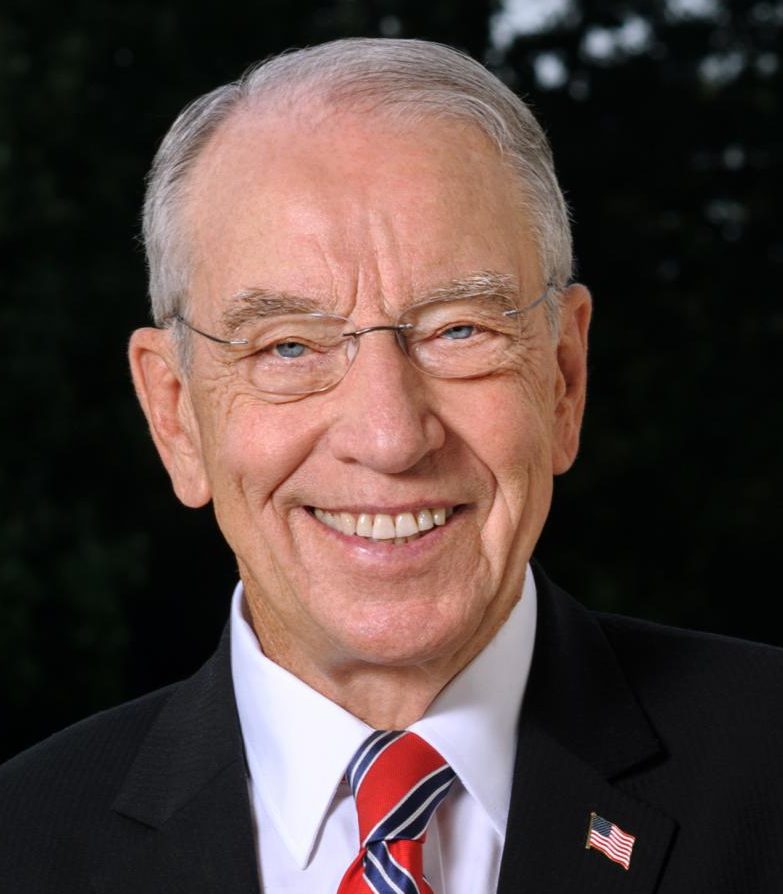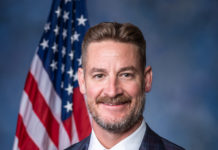U.S. Sen. Chuck Grassley (R-Iowa), today called on the Environmental Protection Agency (EPA) to reconcile two proposed regulations that would likely decrease the supply of electricity to the grid while significantly increasing demand. One rule shutters power plants that fail to meet strict emissions caps, and the other accelerates a transition to electric vehicles, which rely on electricity largely generated from those power plants.
“You don’t have to be an expert in arithmetic to see the conflict EPA is creating with its power plant and vehicle emissions proposals. Unless its goal is to return America to the dark ages, these rules are unworkable. Americans are already struggling to pay higher prices for electricity and transportation under the Biden administration’s policies. These rules would only make whatever electricity is left in the grid more expensive,” Grassley said.
Fossil fuel-powered plants generate more than 60 percent of electricity in the United States. The EPA’s power plant rule would require plants to cut emissions by 90 percent by 2040 or shut down. Its vehicle rule expands strict emissions standards to include passenger cars, even certain trucks, for model years 2023-2026. As a result of this rule, the EPA estimates electric vehicles will account for 60 percent of vehicle sales by 2030.
In a letter today to EPA Administrator Michael Regan, Grassley is seeking an impact analysis of the conflicting rules, as well as evidence that carbon capture technology will be available for power plants to comply with the rule. He’s also seeking information on the cost implications for consumers should the rules take effect.
Full text of the letter follows:
June 27, 2023
VIA ELECTRONIC TRANSMISSION
The Honorable Michael S. Regan
Administrator
U.S. Environmental Protection Agency
Dear Administrator Regan:
In May 2023, the Environmental Protection Agency (EPA) proposed two rules regarding emissions. One rule seemingly limits the output of power plants (The Power Plant Rule), while the other rule appears to increase dependency on them (The Electric Vehicle Rule).
The proposed Power Plant Rule seeks to regulate gas emissions from fossil fuel-fired electric generating units under the authority of the Clean Air Act.[1] This rule would set new caps on emissions for power plant operators making it more expensive to produce electricity.[2] The rule would require most gas and coal-fired power plants in operation to cut their carbon-dioxide emission by 90 percent by 2040 or shut down.[3] Most of our 3,400 natural gas and coal plants would be affected by this rule, which is roughly 25 percent of the country’s greenhouse gas emissions.[4] The rule also discourages the construction of new, gas-fired plants by imposing expensive, new standards.[5]
Our current dependency on these fossil fuel plants is substantial. As recent as 2022, U.S. Energy Information Administration figures show fossil fuels accounted for more than 60% of our electricity generation, with 60% of that amount coming from gas and 40% from coal.[6] Renewables, on the other hand, accounted for only 21.5%, with nuclear energy making up the rest.[7] The U.S. relies heavily on power plants to fuel Americans’ homes, businesses, and even their cars.[8] If the proposed rule targeting power plants is finalized the price of electricity will increase due to the burden it would place on the energy providers.[9]
The proposed rule may not be workable due to a lack of available technology. The rule implies the wide use of new, carbon capture technology as a method to reduce emissions being released into the atmosphere.[10] Despite the EPA’s analysis, there’s concern that the carbon capture technology is not yet technically, and fully, economically demonstrated for large scale use.[11] Because of that, the regulations could force coal and gas-fired power plants to shut down and leave the grid vulnerable to blackouts, more expensive to operate, and subject to long-term consequences.[12]
Put simply, the Power Plant Rule, proposed by the EPA, will decrease our ability to rely on our power grid because of challenges to cost and output. The power plants that cannot reduce their emissions enough to meet the standards will close, taking power offline and reducing the reliability of our grid.[13]
The proposed Electric Vehicle Rule is at odds with The Power Plant Rule. The Electric Vehicle Rule is for new vehicular-emissions standards for criteria pollutants and greenhouse gases pursuant to its authority under the Clean Air Act.[14] These standards extend the EPA’s existing emissions standards for passenger cars and light trucks for model years 2023 through 2026.[15] The EPA expects compliance with the rule will result in at least 60% of new passenger vehicles sold in the U.S. being electric by 2030.[16]
Electric vehicles are powered by lithium-ion batteries. These batteries require electric charging stations to run. By requiring more electric vehicles to be on the road, the EPA will increase the demand for electricity too.[17] This will increase our dependency on the power grid.
The two rules proposed by the EPA directly conflict. More electric vehicles mean more dependency on an increasingly challenged power grid. At the same time, the regulations on the power plants are expected to raise monthly electricity rates.[18] This would drive up the cost of electricity for Americans in both everyday use and for charging these electric vehicles.[19] The price of electricity is currently already inflated as consumers paid 14.3% more for electricity in 2022 than they did in 2021.[20] The EPA’s proposed rule is designed to increase the purchase and use of electric vehicles, which will only increase monthly electric bills at a time when Americans already have less money in the bank due to inflation.
These two rules the EPA has proposed put hard-working Americans between a rock and hard place. With one rule, the EPA limits and undermines the national power grid and accessibility to cheap power, and with the other, it increases America’s dependency on the power grid. For Congress to better understand EPA’s basis for these proposed rules, please provide answers to the following questions by July 11, 2023:
- How does the EPA reconcile the two proposed rules? Has the EPA analyzed the conflicted impact that will be created by both rules? If so, provide all records.[21] If not, why not?
- What evidence does the EPA have that carbon capture technology will be fully available and functional to lower emissions for power plants? What evidence does the EPA have with respect to the increased electricity cost to consumers if the technology is used? Provide all records.
- Does the EPA have a plan in place to prevent the significant increase in the price of electricity that would take place if both proposed rules are finalized? If so, provide all records. If not, why not?
Thank you for your prompt attention to this matter. Should you have any questions, please contact my Committee staff at (202) 224-0642.
Sincerely,
Charles E. Grassley
Ranking Member
Committee on the Budget

















